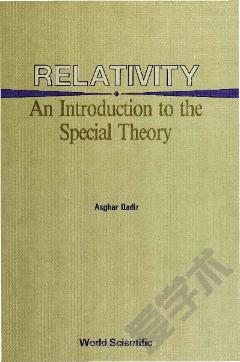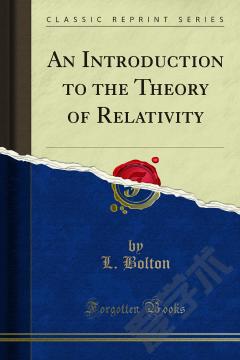Relativity : An Introduction To The Special Theory
The most important feature in this book is the simple presentation with details of calculations. It is very easy to follow. Fairly sophisticated calculations are developed very rapidly. The presentation is logical and the detailed coverage makes this book very readable and useful. The contents develop Relativity as a modern theory of motion, starting by placing it in historical perspective and proceeding to show its logical necessity. The development of the Lorentz transformation is given using only one assumption rather than two. Right away in Chapter 3, geometry as required in Special Relativity for extension to General Relativity is introduced. This enables the use of the four-vector formalism of Minkowski. By the end of Chapter 4, the general Lorentz transformations for three-dimensional motion and their relation to four-dimensional boosts have already been explained. In Chapter 5 applications of relevance in Physics are provided. After a brief introduction to elementary electromagnetic theory, it is reformulated as a theory in four-dimensions using tensors in Chapter 6. Finally in Chapter 7, the theory is extended to deal with accelerated motion as âcorrectionsâ to Special Relativity.
{{comment.content}}








 京公网安备 11010802027623号
京公网安备 11010802027623号